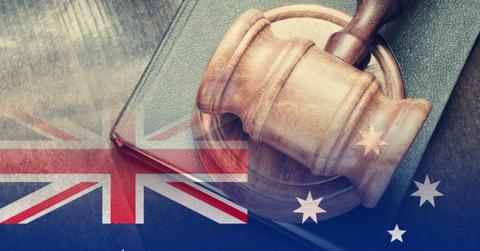 NEWS
NEWSOnline Casinos in Australia: Here’s How Real Money Gambling Is Being Regulated Down Under

Feb. 10 2025, Published 1:02 a.m. ET
Australia has long been a nation with a deep-rooted gambling culture, with its residents spending more on gambling per capita than any other country in the world. However, while the country's love for gambling is undeniable, its legislative framework—especially when it comes to online gambling—has struggled to keep pace with the rapid growth of the industry. This has resulted in a somewhat disjointed regulatory landscape, where the law often lags behind the evolving nature of online gambling, making it difficult to follow at times.
From calls to ban gambling ads and credit cards to crackdowns on offshore gambling, there has been an undeniable shift in recent years to address growing concerns over problem gambling. This comes after revelations that Australians are losing, on average, AU$1,555 per adult each year. As these issues continue to escalate, it has become more important than ever to stay informed and aware of the ever-changing landscape of gambling regulation.
As a well-informed, responsible gambler your priority is to ensure that the operator you’re about to choose from AussieBonuses.com is indeed licensed to operate in Australia. This means it will be fully compliant with the outlined regulatory framework.
Keep reading to explore how Australia regulates online gambling, including the challenges the country faces in keeping up with the rapid growth of the industry.
Australia’s Gambling Landscapes
Gambling in Australia is a significant industry that makes substantial contributions to the economy, but it also presents serious social and public health challenges. A 2022 survey found that 18.6% of Australians have faced psychological and emotional issues related to gambling. In response to these concerns, Australia has implemented a multi-layered regulatory framework involving both federal and state/territory governments to manage gambling activities.
At the federal level, the government plays a crucial role in regulating online gambling and interactive gaming. The Interactive Gambling Act 2001 (IGA) serves as a cornerstone of this regulatory framework, setting guidelines for online gambling operators to ensure they meet legal and consumer protection standards. The primary goal of the IGA was to mitigate the social and economic impact of gambling by regulating operators, rather than penalizing individual gamblers.
Under the IGA, online betting platforms must obtain a license to legally offer services to Australian residents. However, some gambling activities that are not explicitly banned or regulated under the IGA may still operate without the need for a license, creating certain gaps in the regulatory structure.
Various federal authorities, including the Australian Federal Police (AFP) and the Australian Communications and Media Authority (ACMA), are tasked with enforcing the IGA and its provisions. The AFP focuses on combatting illegal online gambling and preventing unlicensed operators from providing services to Australian players. Meanwhile, the ACMA monitors and regulates advertising and promotional activities related to gambling services, ensuring that marketing is responsible and in line with legal requirements.
Necessary Amendments
Want OK! each day? Sign up here!
Before the IGA’s first major reform, Australians had unrestricted access to online gambling platforms, with operators capitalizing on technological advancements to offer a broader range of gambling services. This surge in available options fueled the growth of the industry, which reached a staggering AU$7.52 billion by 2023. However, the rapid expansion of online gambling occurred with limited oversight, leading to the rise of unlicensed and offshore services that operated largely without interference from Australian authorities.
Fifteen years after the IGA’s introduction, the federal government finally recognized the need for reform to address the growing concerns around illegal online gambling and the influx of offshore platforms targeting Australian players. This delay revealed gaps in the law, especially regarding enforcement of online gambling regulations.
In response, the IGA was amended to enhance its enforcement mechanisms and close existing loopholes. The updated legislation gave authorities stronger tools to combat illegal gambling, particularly by focusing on offshore operators and ensuring that they adhered to Australian legal standards. These amendments marked a critical turning point in strengthening Australia’s control over the online gambling sector, ensuring a balance between industry growth and consumer protection.
Way Forward
Australia’s gambling policy highlights the challenge of balancing the economic benefits of the industry with the need for social responsibility. While the gambling sector contributes significantly to the economy, it also raises concerns about addiction, social harm, and public health. As the industry comes under more scrutiny and regulatory demands increase, the key to effective reform will be fostering innovation, ethical leadership, and strong accountability. By focusing on these areas, Australia can create a regulatory environment that promotes industry growth while prioritizing consumer protection.


